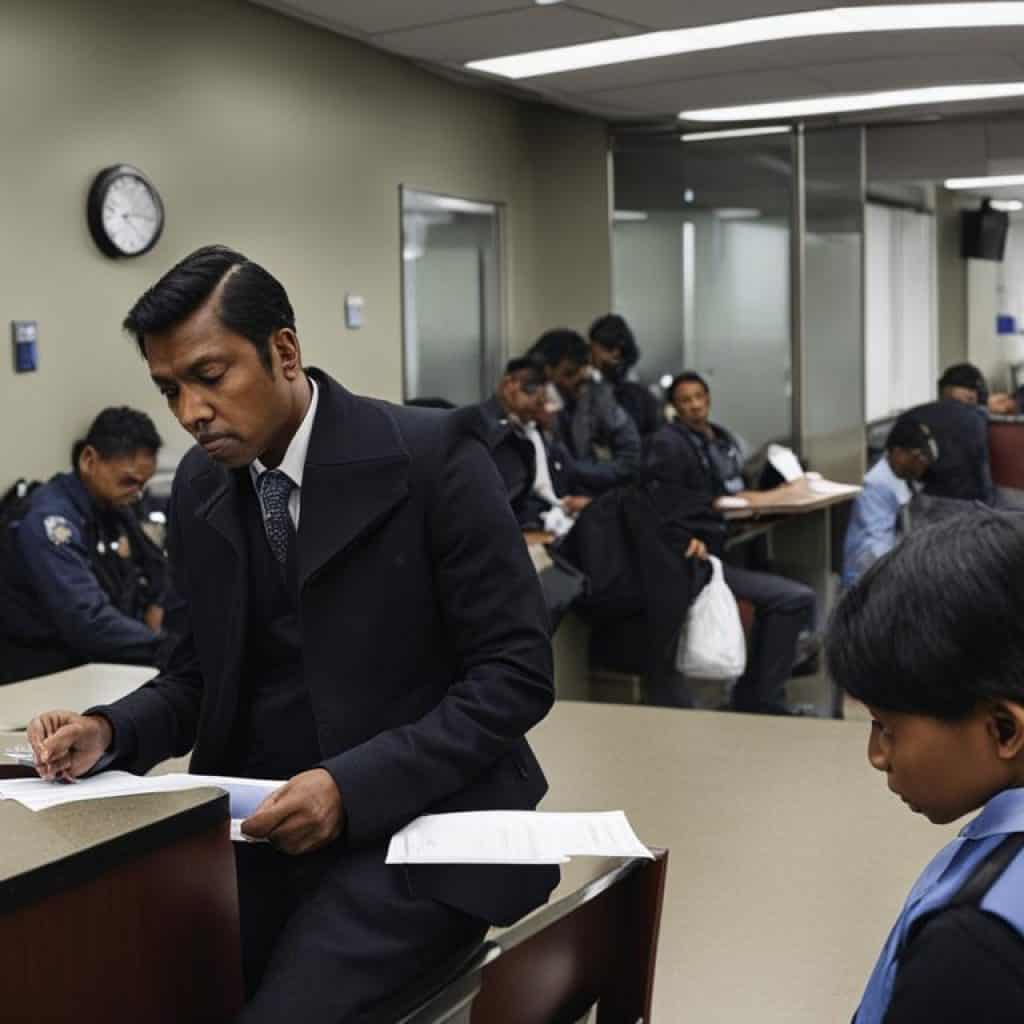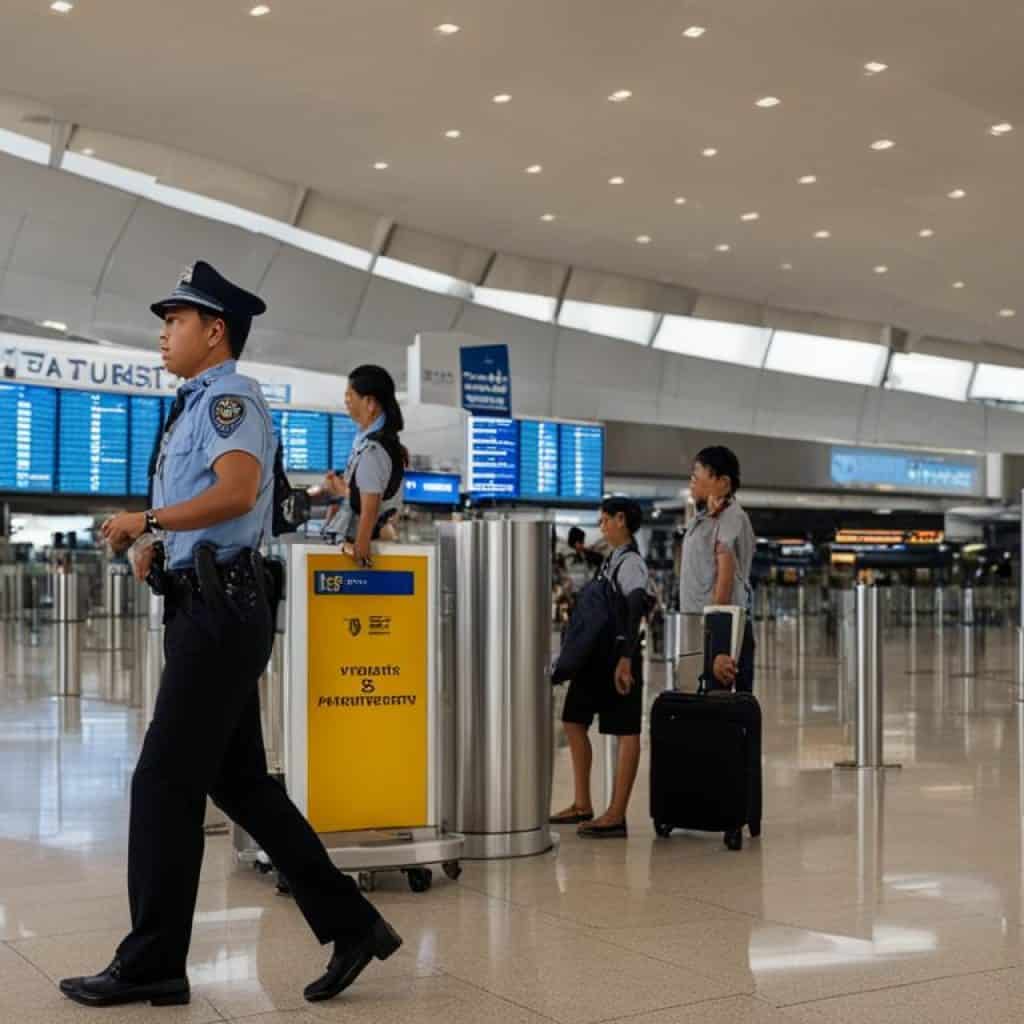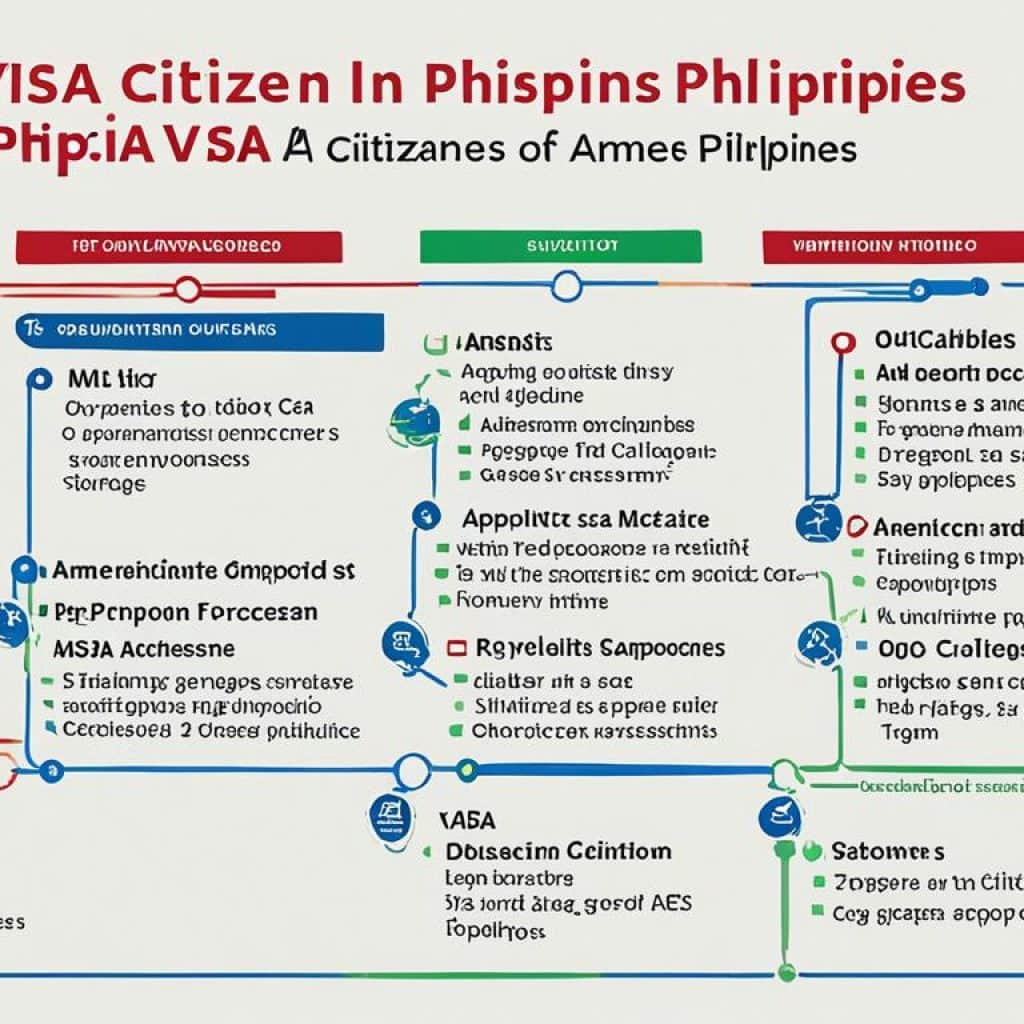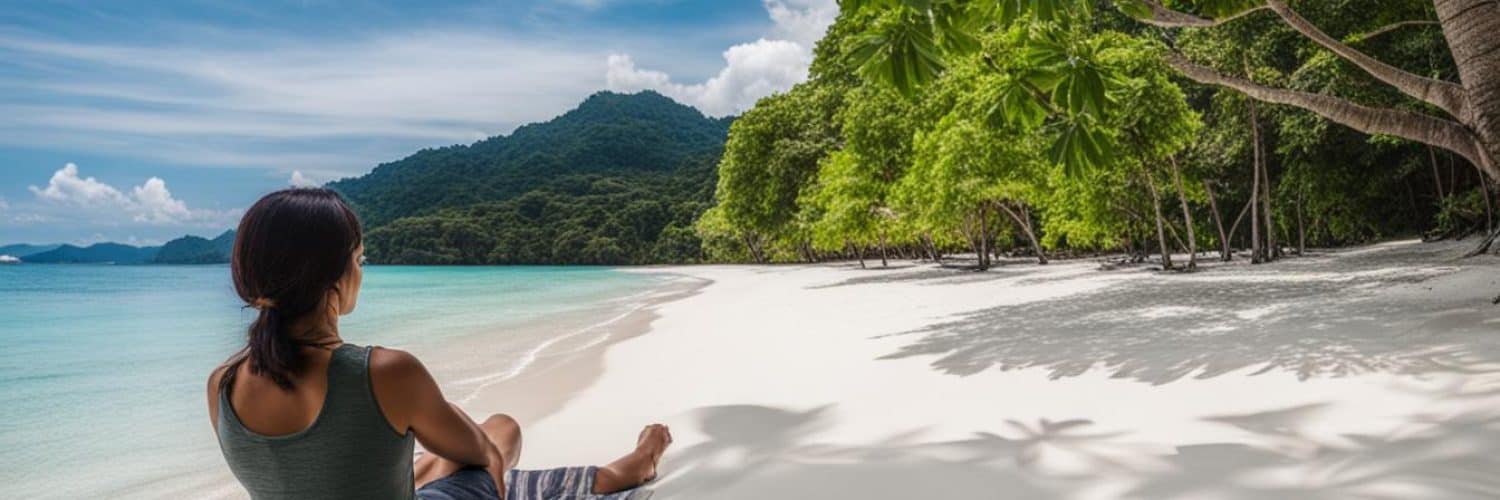Have you ever wondered how long you can stay in the beautiful Philippines as an American citizen? Are there any restrictions or limits on your visit? In this article, we will uncover the answers to these questions and provide you with essential information regarding the duration of your stay in the Philippines. Prepare to have all your doubts cleared and discover the possibilities that await you in this tropical paradise.
Visa Requirements for American Citizens in the Philippines
American citizens traveling to the Philippines must adhere to the visa requirements established by the Philippine government. It is important to note that for stays exceeding 30 days, a visa is generally required. However, American citizens can visit the Philippines without a visa for a maximum of 30 days.
When planning a trip to the Philippines, it is essential for American citizens to understand the visa requirements and duration of stay allowed. Whether you are visiting for leisure, business, or other purposes, knowing the visa regulations will ensure a smooth and hassle-free travel experience.
Stays of 30 Days or Less
American citizens can enjoy a visa-free stay in the Philippines for up to 30 days. This means that you can explore the beautiful beaches, immerse yourself in the vibrant culture, and experience the wonders of the Philippines without the need for a visa.
Stays Longer Than 30 Days
If you plan to stay in the Philippines for more than 30 days, you will need to apply for a visa. There are various types of visas available based on the purpose of your visit, such as tourism, business, employment, or education. The specific visa you should apply for will depend on the nature of your stay.
To obtain a visa for a longer stay, you will need to submit the necessary documents, including a valid passport, completed application form, proof of financial capacity, and an itinerary of travel. It is important to note that the visa processing time may vary, so it is advisable to apply well in advance of your intended travel dates.
Extending Your Stay
If you find yourself needing to extend your stay in the Philippines beyond the allowed duration, you can apply for an extension at the Bureau of Immigration. The extension process involves filling out an application form, providing the necessary documents, and paying the required fees. It is important to note that extensions are granted on a case-by-case basis and are subject to approval by the immigration authorities.
Visa Application Process
Planning to extend your stay in the beautiful Philippines as a US citizen? In order to do so, you’ll need to navigate through the visa application process. This section will guide you through the necessary steps and documents needed to obtain a longer stay visa.
When applying for a visa, the following documents are typically required:
- A valid passport with at least six months of validity remaining.
- A completed visa application form, which can be obtained from the Philippine Embassy website.
- Proof of financial capacity, such as bank statements or employment documents, to demonstrate your ability to cover your expenses during your extended stay.
- An itinerary of travel, outlining your plans and purpose for staying in the Philippines.
The visa processing time can vary, but it typically takes between 7 to 14 working days to receive a visa. It is important to submit your application well in advance to allow for any processing delays.
During the visa application process, it is essential to carefully follow the guidelines provided by the Philippine Embassy or Consulate. Pay close attention to the specific requirements and ensure that you have all the necessary documents in order, as any missing or incomplete information could potentially delay the processing time.
In summary, obtaining a longer stay visa in the Philippines as a US citizen involves submitting the required documents, demonstrating your financial capacity, and providing an itinerary of travel. With patience and careful attention to detail, you’ll soon be able to extend your stay and immerse yourself in the beauty and culture of the Philippines.

Types of Visas for American Citizens
When planning a trip to the Philippines, American citizens need to be aware of the types of visas available to them based on the desired length of stay. The most common type of visa for tourists is the Type 9a Temporary Visitors Visa, which allows for a stay of up to 59 days. This visa is ideal for individuals who wish to explore the country’s beautiful tourist destinations at leisure.
For longer stays in the Philippines, such as for work or study purposes, American citizens may need different types of non-immigrant or immigrant visas. These visas cater to specific purposes and have varying stay limits, so it’s crucial to choose the appropriate visa based on individual circumstances.
| Visa Type | Stay Limit |
|---|---|
| Type 9a Temporary Visitors Visa | Up to 59 days |
| Special Work Permit | Based on work contract duration |
| Student Visa | Depends on the length of the study program |
| Investment Visa | Up to 16 months or longer, depending on investment criteria |
American citizens should carefully review the requirements and conditions associated with each visa type before applying. It’s essential to comply with all necessary documentation, application processes, and stay limits to ensure a smooth and lawful stay in the Philippines.
Visa-Free Entry Guidelines
American citizens planning to visit the Philippines can enjoy visa-free entry for up to 30 days. To make the most of your stay, it is crucial to familiarize yourself with the visa-free entry guidelines set by the Philippine government.
- Passport validity: Ensure that your US passport has at least 6 months validity remaining from the date of your arrival in the Philippines.
- Return or onward ticket: Have a confirmed return ticket or an onward ticket to another destination.
- Bureau of Immigration records: Avoid any derogatory records with the Bureau of Immigration.
By meeting these requirements, you can enter the Philippines without the need for a visa and enjoy a memorable 30-day stay in this beautiful country.
To provide better assistance, here’s a useful visual representation of the visa-free entry guidelines:
Adhering to these guidelines will ensure a hassle-free entry and a wonderful experience exploring the diverse culture, stunning landscapes, and warm hospitality that the Philippines has to offer.
Extending the Length of Stay
If you’re an American citizen visiting the Philippines and wish to extend your stay beyond the allowed duration, you have the option to apply for an extension at the Bureau of Immigration. Applying for an extension allows you to spend more time exploring the beauty and culture of the Philippines.
To begin the extension process, you will need to fill out an application form provided by the Bureau of Immigration. This form includes necessary details such as your personal information, current visa details, and the intended duration of the extension.
Along with the application form, you will be required to submit supporting documents that verify the reason for your extended stay. These documents may include proof of financial capacity to support your extended stay, updated travel itinerary, and any other relevant documents requested by the Bureau of Immigration.
It’s important to be aware that extensions are granted on a case-by-case basis and are subject to approval by the immigration authorities. The decision depends on factors such as the purpose of your extended stay and your compliance with the visa regulations.
Once your application is submitted, you will be required to pay the necessary fees associated with the extension. The fees may vary depending on the duration of the extension and other factors. It’s advisable to inquire about the current fees at the Bureau of Immigration or consult with relevant authorities for accurate information.
Overall, if you find that you need more time in the Philippines to fully experience all that it has to offer, applying for an extension can be a viable option. Be prepared with the required documents, complete the application process diligently, and respect the decision made by the immigration authorities. By following the necessary procedures, you can potentially prolong your stay in this beautiful country and make the most of your time here.
Overstaying and Penalties
American citizens visiting the Philippines must adhere to the visa regulations and respect the length of their stay. Failure to comply with these regulations can result in penalties and other consequences. It is important for American citizens to be aware of the potential penalties for overstaying their allowed duration in the Philippines.
Penalties for Overstaying
When an American citizen exceeds their permitted stay in the Philippines, they may face penalties imposed by the Bureau of Immigration. The severity of the penalties depends on the length of the overstay and is determined in accordance with immigration laws and regulations.
“Overstaying can result in fines, deportation, or other legal actions.”
The fines for overstaying in the Philippines can range from â±500 (approximately $10) to â±2,000 (approximately $40) per month of overstay. These fines can add up quickly and burden travelers financially. In addition to the financial penalties, an overstayer may also be subject to deportation proceedings and permanent bans from re-entering the country.
The Bureau of Immigration has the authority to exercise discretion in assessing and determining penalties based on the individual circumstances of each case. It is important to note that ignorance of the immigration laws or unintentional overstays do not excuse individuals from facing penalties. Therefore, it is crucial for American citizens to be aware of and comply with the visa regulations to avoid any legal issues or complications during their stay in the Philippines.
Note: Always consult the updated official guidelines provided by the Philippine Bureau of Immigration for the most accurate and up-to-date information regarding overstaying penalties.

Visa Application Tips and Recommendations
When planning a trip to the Philippines, American citizens need to be aware of the visa requirements and application process. To ensure a smooth and successful visa application, here are some essential tips and recommendations:
1. Prepare all necessary documents
- Valid Passport: Ensure that your passport is valid for at least six months beyond your planned departure date from the Philippines.
- Completed Application Form: Fill out the visa application form accurately and neatly.
- Proof of Financial Capacity: Provide supporting documents, such as bank statements or employment letters, to prove your ability to cover the costs of your stay in the Philippines.
- Travel Itinerary: Submit a detailed itinerary of your travel plans, including accommodation bookings and flight reservations.
2. Apply well in advance
It is recommended to apply for the visa well in advance of your intended travel dates. This allows sufficient time for any processing delays and ensures that you will receive your visa in time for your trip to the Philippines.
3. Follow embassy or consulate guidelines
When applying for a visa, it is important to follow the guidelines provided by the Philippine Embassy or Consulate. These guidelines may include specific instructions regarding the format of documents, photograph requirements, and other essential details. Adhering to these guidelines helps avoid any complications during the application process.
4. Double-check your application
Before submitting your visa application, carefully review all the information you have provided. Make sure that there are no errors or inconsistencies. Double-checking your application can help prevent delays or rejections due to incomplete or inaccurate information.
5. Seek professional assistance if needed
If you are unsure about any aspect of the visa application process or have specific questions, consider seeking professional assistance. Immigration consultants or travel agencies specializing in Philippine visas can provide guidance and support to ensure a successful application.
Tip: Hiring the services of an immigration lawyer or consultant may incur additional costs, but it can provide valuable expertise and peace of mind throughout the visa application process.
By following these visa application tips and recommendations, American citizens can increase their chances of obtaining a visa for their trip to the Philippines. Remember to start the application process early, gather all necessary documents, and carefully adhere to the guidelines provided by the Philippine Embassy or Consulate. A well-prepared application will help ensure a smooth and hassle-free travel experience.
Traveling with a Visa Processing Timeframe
American citizens planning to travel to the Philippines should take into consideration the visa processing timeframe when making travel arrangements. It is important to allow sufficient time for the visa application and processing before booking flights or making other travel arrangements. This will help ensure a smooth and hassle-free travel experience.
Applying for a visa requires gathering the necessary documents, completing the application form, and submitting everything to the appropriate authorities. The processing time for visas can vary, so it’s crucial to check the expected timeframe and plan accordingly. Rushing the visa application process may lead to unnecessary stress and increased chances of errors or incomplete documentation.
Once the visa application is submitted, it is recommendable to keep track of the processing status and any additional requirements or updates from the immigration office. This can be done by regularly checking the application status online or contacting the relevant embassy or consulate.

Having the visa approved before making travel arrangements eliminates the risk of booking flights or accommodations that may need to be canceled or rescheduled due to visa delays. It is advisable to allow a buffer time of at least a few weeks between the expected visa approval date and the intended travel date.
By considering the visa processing timeframe and allowing ample time for application and approval, American citizens can minimize the chances of encountering travel disruptions and enjoy a seamless trip to the Philippines. Planning ahead is key to ensuring a stress-free travel experience and maximizing the enjoyment of the trip.
Important Information for American Citizens Traveling to the Philippines
American citizens planning a trip to the Philippines should take the time to familiarize themselves with the local laws, customs, and regulations to ensure a safe and enjoyable stay. To help ensure a smooth journey, here are some key points to keep in mind:
- Register with the US Embassy or Consulate: It is recommended that American citizens register their travel plans with the US Embassy or Consulate in the Philippines. This allows the embassy to keep you informed of any safety updates, provide assistance in case of emergencies, and offer support during your stay.
- Maintain important documents: It is essential to keep copies of important documents, such as passports and visas, in a secure location during your trip. In the unfortunate event that your documents are lost or stolen, having copies can greatly expedite the process of obtaining replacements.
“By registering with the embassy and safeguarding your travel documents, you can have peace of mind knowing that you have support and a backup plan in case of any unforeseen circumstances.” – Travel Safety Expert
Safety Tips for American Travelers
In addition to registering with the embassy and safeguarding documents, here are some general safety tips for American citizens traveling to the Philippines:
- Research the destination: Familiarize yourself with the local culture, customs, and current events. Knowing the local customs can help you navigate social situations more smoothly.
- Stay informed: Stay updated on the latest travel advisories and safety information for the Philippines. The US Department of State provides valuable resources and information on their website.
- Be cautious of your surroundings: As with any travel destination, it is important to be aware of your surroundings and exercise caution, especially in crowded areas or unfamiliar locations. Keep an eye on your belongings and avoid displaying signs of wealth.
- Respect local laws and customs: Observe and respect the laws, customs, and traditions of the Philippines. Remember that as a guest, it is important to be mindful of local norms and traditions.
Emergency Contact Information
In the event of an emergency or if you require assistance while in the Philippines, here are some important contact numbers:
| Emergency Service | Contact Number |
|---|---|
| Police (general emergencies) | 117 |
| Fire Department | 117 |
| Medical Emergency | 911 |
| US Embassy in Manila | +63 2 301 2000 |
By following these tips and staying informed, American citizens can have a memorable and enjoyable experience during their visit to the Philippines.
Currency and Financial Considerations
American citizens planning a visit to the Philippines should be aware of the local currency and financial considerations to ensure a smooth and convenient stay. Here are some important tips to keep in mind:
Exchange Currency
Upon arrival, it is advisable to exchange some US dollars for Philippine pesos. This will allow you to have local currency on hand for everyday expenses, such as transportation, food, and shopping. Currency exchange services are available at airports, hotels, banks, and authorized money exchange centers.
Multi-Currency Cards
An alternative option is to use a multi-currency card, which allows you to load multiple currencies onto a single card. This can be a convenient way to manage your finances during your stay in the Philippines, as you can withdraw cash from ATMs or make card payments in the local currency. It is important to check the fees and terms associated with using multi-currency cards.
Currency Exchange Rates
When making financial transactions in the Philippines, such as exchanging currency or making card payments, it is crucial to be aware of the currency exchange rates. Exchange rates may fluctuate daily, so it is advisable to check the rates provided by reputable sources or financial institutions before making any transactions. This will help you make informed decisions and avoid unfavorable rates.
Transaction Fees
It is important to inquire about any transaction fees or charges associated with currency exchange or card payments. Some banks or exchange centers may charge a commission or fee for their services. By understanding these fees in advance, you can plan your finances accordingly and avoid any surprises.
By keeping these currency and financial considerations in mind, you can ensure a hassle-free and enjoyable visit to the Philippines.
Support and Assistance for American Citizens
American citizens traveling to the Philippines can have peace of mind knowing that support and assistance are readily available from the US Embassy or Consulate in case of emergencies or unforeseen situations. The embassy is committed to ensuring the safety and well-being of American citizens during their stay in the Philippines.
Whether you require guidance on local laws and regulations, consular services, or immediate assistance during a crisis, the knowledgeable staff at the US Embassy or Consulate is there to provide the necessary aid. They can offer valuable information, resources, and support, enabling you to navigate any challenging situations that may arise during your visit.
“The US Embassy or Consulate in the Philippines is your reliable partner and advocate. Our dedicated team is always available to assist American citizens and offer the support they need.”
From lost passports or legal troubles to medical emergencies or natural disasters, the US Embassy or Consulate can offer expert advice and help connect you with the appropriate local authorities or service providers. They can guide you through the necessary procedures, provide contact information for local hospitals or lawyers, and assist in coordinating with family members or friends back home.
It is essential to familiarize yourself with the contact information of the nearest US Embassy or Consulate before embarking on your trip to the Philippines. This way, you can promptly reach out to them in case of any urgent situations, ensuring that you receive the necessary support and assistance expeditiously.
In case of an emergency during your stay in the Philippines, please contact the nearest US Embassy or Consulate:
| US Embassy or Consulate | Contact Information |
|---|---|
| US Embassy Manila | (+63) 2 301-2000 co***********@***te.gov |
| US Consular Agency Cebu | (+63) 32 231-1261 ce*****************@***il.com |
| US Consular Agency Davao | (+63) 82 227-3900 da**********************@***te.gov |
The US Embassy or Consulate in the Philippines is dedicated to providing support, assistance, and important consular services to American citizens. They are committed to ensuring that your stay in the Philippines is safe, secure, and enjoyable. Remember, you are not alone during your travels, and the US Embassy or Consulate is there to help.
Conclusion
In conclusion, American citizens can stay in the Philippines for up to 30 days without a visa. However, for longer stays, a visa is required, and the length of stay will depend on the type of visa obtained. It is crucial for American citizens to adhere to the visa regulations and follow the necessary procedures to ensure a smooth and enjoyable visit to the Philippines.
When planning a trip to the Philippines, American citizens should familiarize themselves with the visa requirements and guidelines. It is recommended to apply for a visa well in advance of the intended travel dates to allow for any processing delays. Additionally, it is important to be aware of the local laws, customs, and regulations for a safe and enjoyable stay.
For any support or assistance during the visit, American citizens can always seek help from the US Embassy or Consulate in the Philippines. They provide consular services and guidance, ensuring American citizens have access to the necessary resources and information.
FAQ
How long can an American citizen stay in the Philippines without a visa?
An American citizen can stay in the Philippines without a visa for a maximum of 30 days.
How can an American citizen stay longer than 30 days in the Philippines?
To stay longer than 30 days, an American citizen must apply for a visa through the visa application process.
What types of visas are available for American citizens visiting the Philippines?
What are the visa-free entry guidelines for American citizens visiting the Philippines?
How can an American citizen extend their stay in the Philippines?
An American citizen can apply for an extension at the Bureau of Immigration by filling out an application form, providing the necessary documents, and paying the required fees. Extensions are granted on a case-by-case basis and subject to approval by immigration authorities.
What are the penalties for overstaying in the Philippines?
Overstaying in the Philippines can result in penalties, such as fines and possible deportation. The penalties vary depending on the length of the overstay and are determined by the Bureau of Immigration.
What tips and recommendations should American citizens follow when applying for a visa to the Philippines?
American citizens should ensure they have all the necessary documents and information ready when applying for a visa. It is recommended to apply well in advance of the intended travel dates and follow the guidelines provided by the Philippine Embassy or Consulate.
How should American citizens plan their travel to the Philippines considering the visa processing timeframe?
American citizens should allow sufficient time for the visa application and processing before booking flights or making other travel arrangements to avoid any delays or complications.
What important information should American citizens know before traveling to the Philippines?
American citizens should familiarize themselves with the local laws, customs, and regulations in the Philippines. It is recommended to register with the US Embassy or Consulate and keep copies of important documents in a secure location.
What currency and financial considerations should American citizens be aware of when traveling to the Philippines?
It is advisable to exchange some US dollars for Philippine pesos upon arrival or use a multi-currency card for convenience. American citizens should also be cautious of currency exchange rates and fees when making financial transactions in the Philippines.
Where can American citizens seek support and assistance during their stay in the Philippines?
American citizens can seek support and assistance from the US Embassy or Consulate in the Philippines in case of emergencies or unforeseen situations. The embassy can provide guidance, consular services, and assistance.


















Add comment